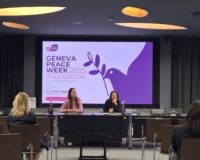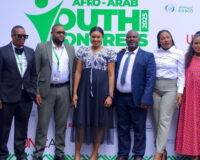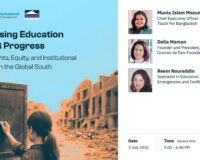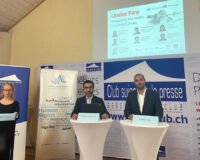A seminar held on Wednesday by Jusoor International Center for Media and Development, in cooperation with the Geneva Press Club, recommended the need for journalists to use artificial intelligence technologies to protect them in conflict and war zones.
For his part, the head of Jusoor International, Mohamed Al Hammadi, stressed that “the issue of protecting journalists is not limited to the Middle East and Africa region only, but rather in various parts of the world.”
Hammadi, an expert in media issues and international relations, added that “there are different forms of assault on journalists, including physical assaults, personal threats, assaults on their families, and threats to their career future, and this has forced many journalists to leave the profession due to these pressures.”
He stressed that “the assault on journalists will not stop as long as the attackers escape punishment, so the first step to protect journalists is to hold accountable and prosecute those who cause their death or threaten them,” noting “the need to have ideas and methods outside the box to protect journalists.”
Hammadi recommended using artificial intelligence techniques to protect journalists by analyzing data and predicting the risks they may face during their work in conflict and war zones, expanding the use of drones, which help journalists obtain visual information, as well as training and qualifying journalists on cybersecurity, and finally developing what is called virtual journalism and remote work in conflict zones.
Isabelle Falconnier, Executive Director of the Geneva Press Club, said that “journalists in all countries of the world face many challenges, especially in conflict zones,” noting that “all media workers are subjected to violations, which leads to withholding information from public opinion in all countries of the world.”
Jean-Philippe Jutzi, Vice President of the Press Emblem Campaign, said that “conflicts have become complex with the overlap of parties and the spread of armed groups such as ISIS and other jihadist groups, and for example, drug trafficking groups in Latin America are also involved in conflicts,” stressing that “despite this, the organization seeks to obtain all information related to victims among journalists.”
“During the Covid-19 crisis, we also included in our calculations the technicians who help journalists in doing their work,” Jutzi added, noting that his organization “is currently working on coordinating with journalistic institutions to establish an international treaty, establish independent committees to protect journalists who are doing their work, and adopt an international slogan to protect journalists.”
In a recording from Gaza, Palestinian journalist Mohamed Sawwaf said, “When I was sent the seminar’s topics about the reality of Palestinian journalists in Gaza, I found that it is impossible to ignore the war of extermination facing the Strip. Before the current war, there was no danger or threat to the lives of journalists, whether from the Palestinian Authority or Hamas, but in light of this war, there is no ability to protect journalists.”
Sawwaf added that “95% of Palestinians in Gaza have been displaced, including journalists who have families, as there is no journalist who has not left his home more than once. I was among the wounded who were disabled by the war, and the offices of media outlets and news agencies in Gaza were targeted.”
“If a Palestinian journalist publishes anything that happens in the Gaza Strip, the Israeli lobbies will turn into a sword hanging over his neck,” he continued, calling on state institutions to take action to protect Palestinian journalists, saying, “We want action, not speeches and slogans.”
Meanwhile, media technology expert Thomas Mason said that “there are misconceptions regarding areas related to security, including journalism,” noting that “there are technologies that were used 25 years ago and it was difficult to maintain them. At that time, we thought they were protected and strong.”
For her part, journalist and documentary filmmaker Laura Burns said that “the information transmitted by journalists affects the lives of civilians and the way they follow wars and conflicts,” explaining that “it is necessary for the stories published by journalists to influence public opinion.”
“Through my professional experience while covering wars in a number of areas, there were problems in collecting real information, and it is difficult to reach peace without that information,” she added.
“The Israeli forces have become the only source of information about what is happening in Gaza, in the absence of journalists who are being killed amid international silence,” said Ousmane Noor, co-director of the Civilian Agenda, stressing that “Israel practices apartheid and all forms of persecution against journalists.”







